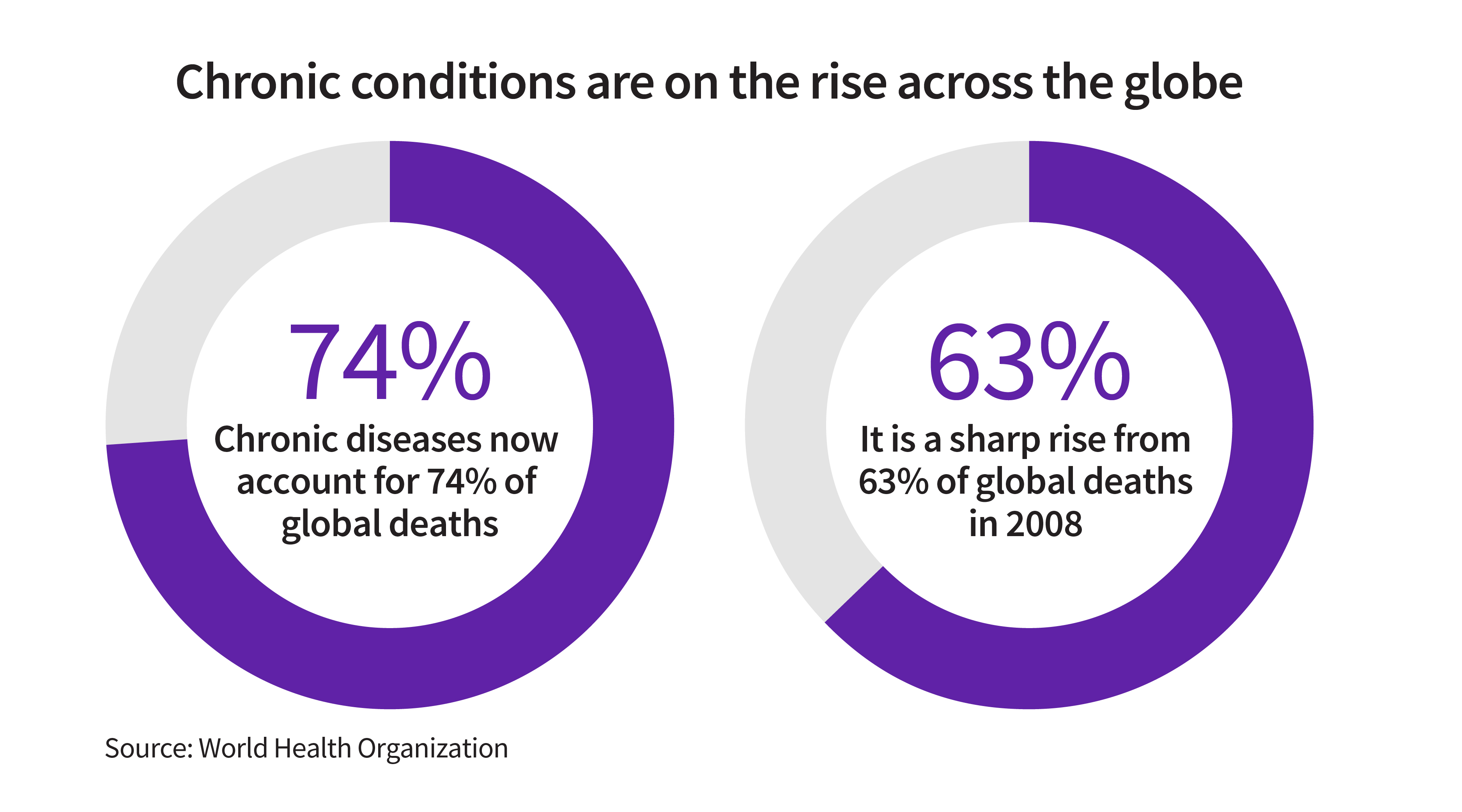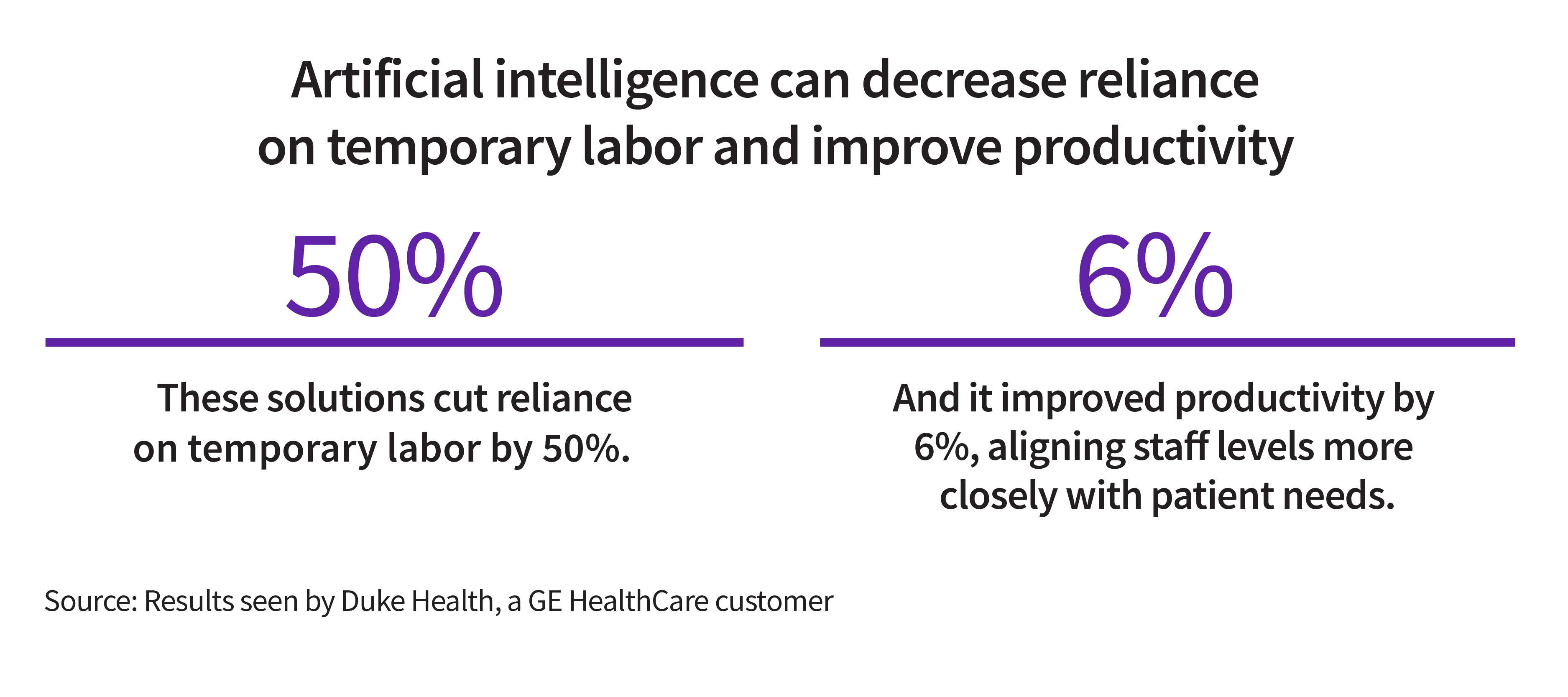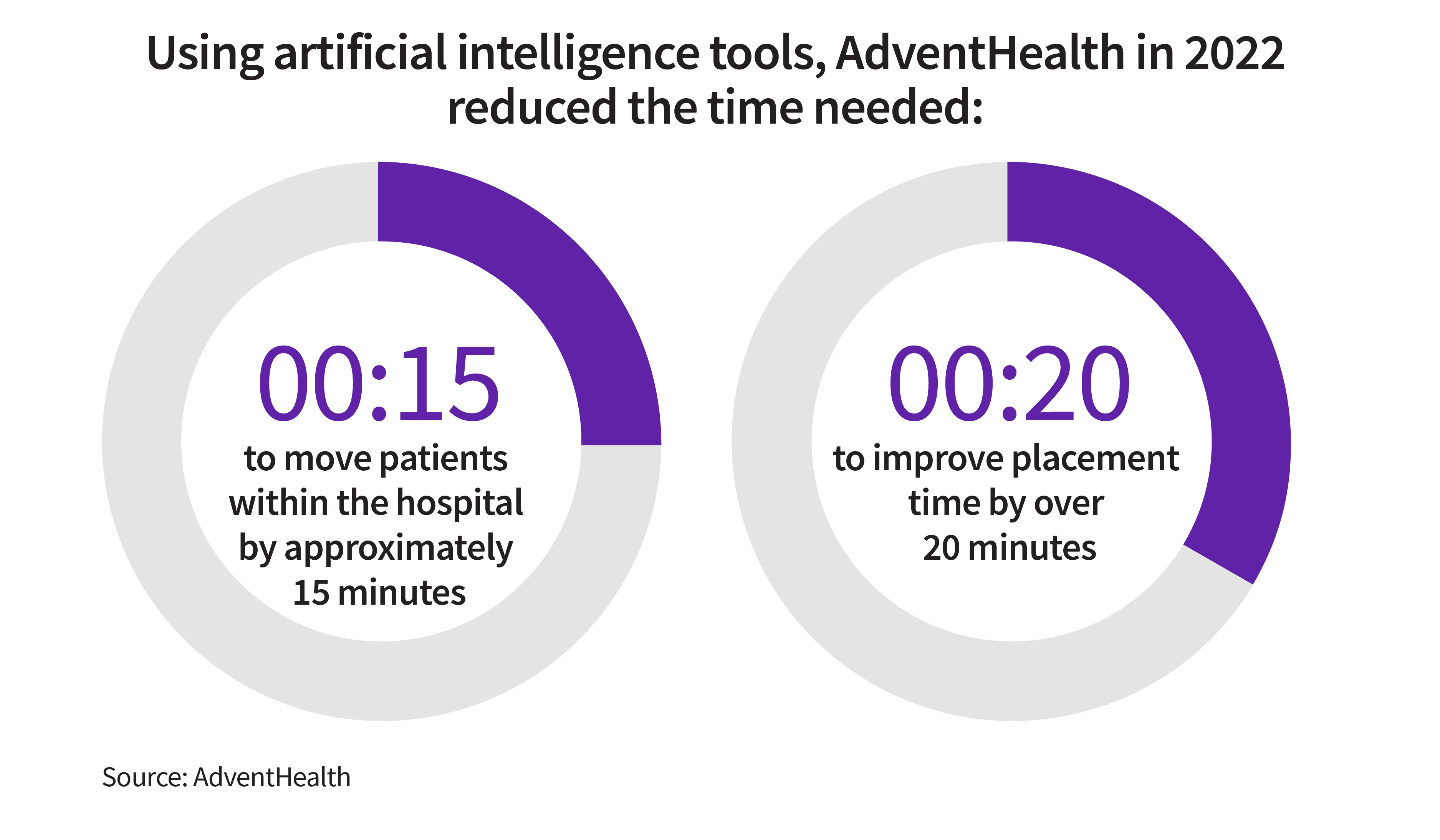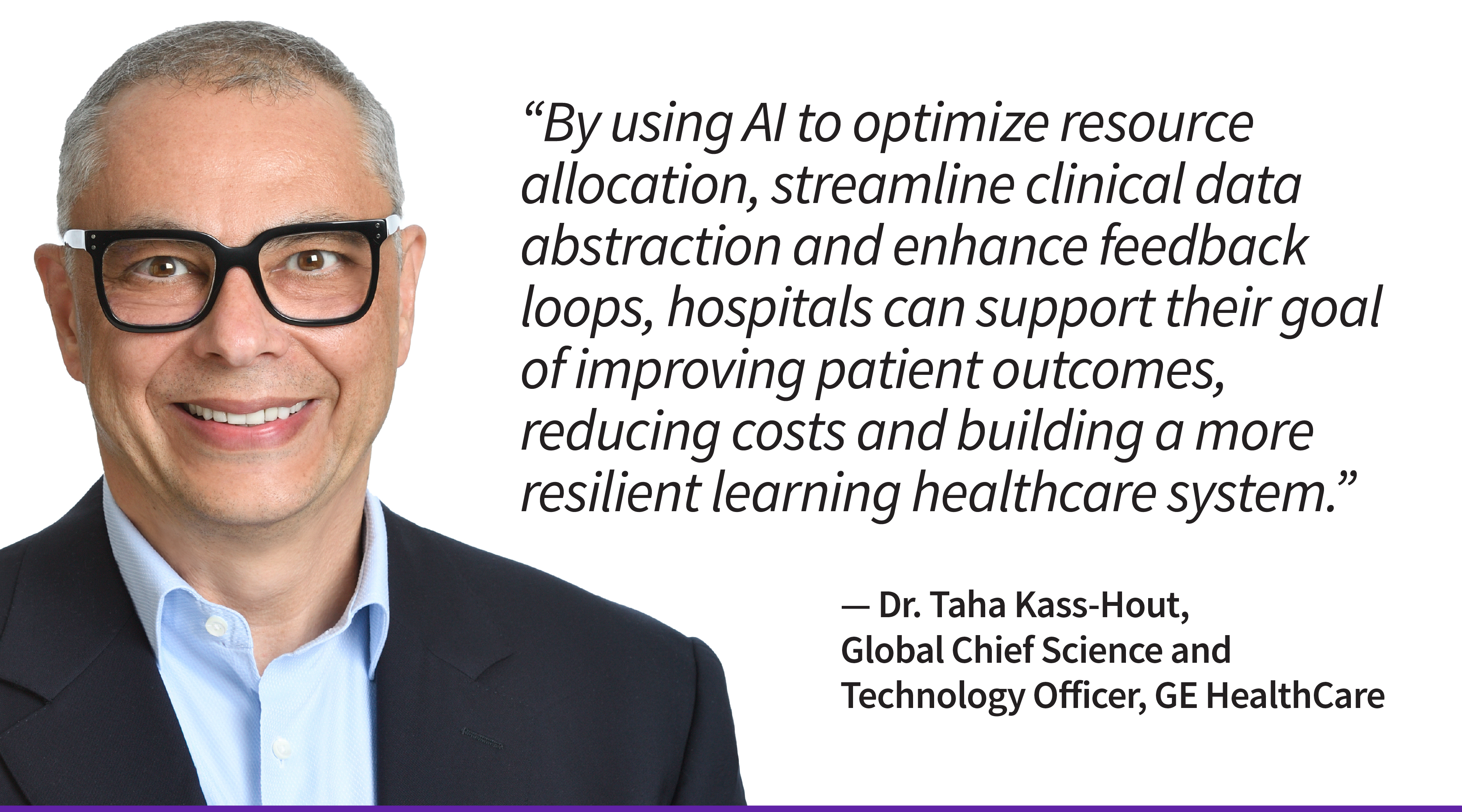By Dr. Taha Kass-Hout, Global Chief Science and Technology Officer, GE HealthCare
From highlighting bottlenecks to predicting patient demand, new tools offer solutions to healthcare’s most pressing challenges.
Healthcare systems today face a daunting set of challenges. Noncommunicable diseases, such as heart disease, stroke and cancer, now cause three-quarters of all deaths worldwide, a sharp increase from 63% in 2008. These chronic conditions are fueling demand for healthcare services as the worsening provider shortage compounds the pressure on capacity. For example, the World Health Organization predicts a shortage of 4.5 million nurses and 310,000 midwives by 2030.
Hospital bed management has been especially hard hit by the intersection of rising patient volumes and operational inefficiencies. Delays in discharging or transferring patients can tie up beds needed for incoming patients, creating a backup that ripples across a hospital’s operations. Since critical care beds are some of the most expensive real estate in healthcare—costing up to $4,300 per day to operate—the growing backlog drives up expenses for providers.
Artificial intelligence (AI) offers powerful solutions to these persistent healthcare challenges, cutting the length of hospital stays, improving capacity and helping care providers make more informed decisions in real time.
Here are three ways that AI is already improving healthcare outcomes and hospital operations:
1. Predicting healthcare staffing needs
Just as streaming services recommend content based on your viewing history, AI can detect patterns in reams of information to help hospitals anticipate patient flow and resource needs. By analyzing historical and real-time data, predictive models can forecast bed occupancy, discharges and staff demands, enabling proactive decision-making. Duke Health, for example, used these solutions to cut reliance on temporary labor by 50% and improve productivity by 6%, aligning staff levels more closely with patient needs.
2. Providing recommendations for hospital bed management
Bed management is one of the toughest challenges for healthcare systems. As patients arrive from emergency departments, procedural areas and transfer lines, providers must match them with the right beds by considering more than 20 clinical and operational factors—all while coping with limited availability. However, AI-powered resource management tools can alert clinical staff when a bed becomes available and, if multiple patients are waiting, select the best match based on urgency, staffing and capacity constraints. By speeding these decisions, AI can relieve ER congestion, reduce the burden on staff and improve efficiency.
For example, in 2022, AdventHealth was able to reduce transport time to move patients from one location to another within the hospital by approximately 15 minutes and improve patient placement time by over 20 minutes through the use of AI.
3. Helping healthcare teams prioritize decision making
AI-powered solutions also enhance clinicians’ decision-making and help hospitals resolve critical issues quickly by illuminating the bottlenecks that strain both physical resources and employees’ workloads. For example, AI can extract, format and organize patient chart information to save clinicians time—and boost their accuracy—as they write reports. By relieving nurses and physicians of manual data entry tasks, these AI-powered tools can help provide a clearer operational view.
Understanding and overcoming the hurdles of AI in healthcare
However, AI tools come with operational hurdles, including strict data privacy standards, upfront integration costs and the need for extensive staff training. Hospitals can mitigate these challenges by implementing robust data governance frameworks, phased rollouts and ongoing education programs. In addition, no‑code workflows and natural‑language interfaces let clinicians interact with AI using plain English rather than complex dashboards.
Leaning into AI’s potential to transform healthcare
AI can provide transformative solutions to some of healthcare’s most pressing challenges. By using AI to optimize resource allocation, streamline the process of extracting key data from clinical documents and enhance feedback loops, hospitals can support their goal of improving patient outcomes, reducing costs and building a more resilient learning healthcare system. Healthcare leaders should continue to explore how they can integrate AI into their operations as they work to ensure a more sustainable and patient-centered future.
Excerpted from a Forbes Technology Council post by Dr. Taha Kass-Hout, Forbes Council Member. Learn more about how GE HealthCare is leveraging AI to build smarter devices, help enable personalized treatments and make hospitals more efficient.






